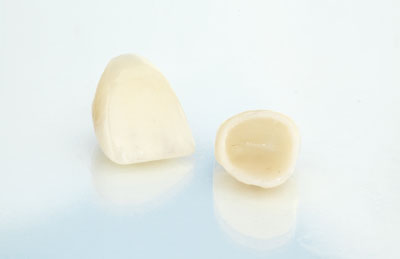Dental crowns are necessary for a variety of cases. Below, we explain each of these instances in detail to help patients determine when a dental crown will prove helpful. Give this piece a read and you will be able to make an informed decision about whether a dental crown is necessary for your unique mouth.
A Broken Tooth
If we can salvage a decayed or broken tooth, but it is too large for a filling, a dental crown will be the more effective options. The dental crown typically consists of ceramic that matches the color of the tooth. The dental crown covers the visible portion of the full tooth or only the portion that is problematic. Dental crowns can also help control fractures, remedy issues with the bite, enhance looks and correct alignment problems.
Add a Dental Crown for Cosmetic Purposes
Adding a dental crown will restore the look of the patient’s teeth, including crooked teeth. patients can cover up unsightly teeth with a crown and no one will be able to see the stains or discoloration. It is important to note a dental crown can be a long-lasting solution instead of other options that will need constant maintenance or repairs.
Enhance Tooth Functionality
A dental crown can also help to protect weak teeth. A crown is perfect for a cracked tooth since it will hold the parts together. People receiving a dental implant to replace one missing tooth will require a crown over the implant. A patient who has a large filling in a tooth or has a filling in a tooth several times will have weak tooth structure that a dental crown can enhance.
A dental crown will also help strengthen the tooth after a root canal. The tooth can weaken and even become brittle following a root canal. Placing a dental crown on the tooth after a root canal will significantly enhance the tooth’s strength.
Disagreement About Dental Crowns
In some instances, dentists disagree about whether or not a dental crown is the most effective solution. Dental treatment is subjective, meaning each practitioner has his or her own idiosyncratic opinion. Therefore, some dentists can have conflicting viewpoints about the merit of a crown. As an example, if there is a fracture that runs through a molar, it might not have symptoms. However, many dentists are aware the fracture has the potential to subsequently split at a later point in time and result in tooth loss.
The dentist must decide if a filling will suffice or serve as a short-term solution. It is even possible a filling will make it worse. Those who eat hard and sticky foods will find a crown might be the optimal oral health solution due to its enhanced strength. In the end, the decision to add a crown is ultimately a judgment call you and Ron Wallach DMD will make together.
If you have any other questions or to make an appointment in our Kula dental office, call us at (808) 876-1198.
